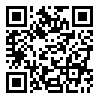Fri, Jan 2, 2026
Volume 8, Issue 1 (Continuous publishing 2022)
Iran J Neurosurg 2022, 8(1): 0-0 |
Back to browse issues page
Download citation:
BibTeX | RIS | EndNote | Medlars | ProCite | Reference Manager | RefWorks
Send citation to:



BibTeX | RIS | EndNote | Medlars | ProCite | Reference Manager | RefWorks
Send citation to:
Shafiei S, Zaheriani M S, Sahfizad M, Ehteshami S, Mosazadeh M, Haddadi K. Neuroprotective Effects of Vitamin D on Patients With Traumatic Brain Injury: A Clinical Trial. Iran J Neurosurg 2022; 8 (1) : 4
URL: http://irjns.org/article-1-291-en.html
URL: http://irjns.org/article-1-291-en.html
Sajjad Shafiei1 

 , Mohammad Sardar Zaheriani2
, Mohammad Sardar Zaheriani2 
 , Misagh Sahfizad3
, Misagh Sahfizad3 
 , Saeid Ehteshami4
, Saeid Ehteshami4 
 , Mahmoud Mosazadeh5
, Mahmoud Mosazadeh5 

 , Kaveh Haddadi *6
, Kaveh Haddadi *6 




 , Mohammad Sardar Zaheriani2
, Mohammad Sardar Zaheriani2 
 , Misagh Sahfizad3
, Misagh Sahfizad3 
 , Saeid Ehteshami4
, Saeid Ehteshami4 
 , Mahmoud Mosazadeh5
, Mahmoud Mosazadeh5 

 , Kaveh Haddadi *6
, Kaveh Haddadi *6 


1- Assistant Professor of Neurosurgery, Functional Fellowship, Department of Neurosurgery, Orthopedic Research Center, Mazandaran University of Medical Sciences, Sari, Iran
2- Resident of Neurosurgery, Department of Neurosurgery, School of Medicine, Mazandaran University of Medical Sciences, Sari, Iran
3- Assistant Professor Neurosurgery, Functional Fellowship, Department of Neurosurgery, School of Medicine, Mazandaran University of Medical Sciences, Sari, Iran
4- Assistant Professor Neurosurgery, Spine Fellowship, Department Of Neurosurgery, School Of Medicine, Mazandaran University of Medical Sciences, Sari, Iran
5- MPH, PhD., in Epidemiology, Associate Professor, Gastrointestinal Cancer Research Center, Non-communicable Diseases Institute, Mazandaran University of Medical Sciences, Sari,Ira
6- Associate Professor of Neurosurgery, Spine Fellowship, Department of Neurosurgery, Orthopedic Research Center, School of Medicine, Mazandaran University of Medical Sciences, Sari, Iran ,kavehhaddadi56@gmail.com
2- Resident of Neurosurgery, Department of Neurosurgery, School of Medicine, Mazandaran University of Medical Sciences, Sari, Iran
3- Assistant Professor Neurosurgery, Functional Fellowship, Department of Neurosurgery, School of Medicine, Mazandaran University of Medical Sciences, Sari, Iran
4- Assistant Professor Neurosurgery, Spine Fellowship, Department Of Neurosurgery, School Of Medicine, Mazandaran University of Medical Sciences, Sari, Iran
5- MPH, PhD., in Epidemiology, Associate Professor, Gastrointestinal Cancer Research Center, Non-communicable Diseases Institute, Mazandaran University of Medical Sciences, Sari,Ira
6- Associate Professor of Neurosurgery, Spine Fellowship, Department of Neurosurgery, Orthopedic Research Center, School of Medicine, Mazandaran University of Medical Sciences, Sari, Iran ,
Abstract: (3975 Views)
Background and Aim: Traumatic brain injury (TBI) is a globally-critical socioeconomic and public health problem. Introducing medications and strategies to treat and improve the prognosis of TBI is crucial. Current literature not only supports the key role of vitamin D on normal brain function, but also helps recovering from a myriad of pathologies. The present research was conducted to evaluate the neuroprotective effects of vitamin D on patients with TBI presenting to Imam Khomeini Hospital, Sari, Iran.
Methods and Materials/Patients: This randomized clinical trial assigned patients with vitamin D levels of over30 ng/ml to an intervention group (n=42) and a control group (n=42), who respectively received a single dose (150,000 units) of vitamin D and a placebo upon admission. The Glasgow Coma Score (GCS)
and mortality were recorded at the beginning of the study and three months after the final prescription.
Results: The mean GCS score upon admission was obtained as 8.64±2.29 in the vitamin D group and 8.42±2.93 in the placebo group. This score was respectively obtained as 13.50±1.85 and 10.97±2.37 upon discharge, suggesting a significant difference as per the t-test (P=0.04).The mean Glasgow Outcome Score (GOS) upon discharge was obtained as 4.24±1.51 in the intervention group and 4.10±1.40in the controls. The t-test suggested insignificant differences in the GOS between the two groups upon admission (P=0.823). After three months, the GOS respectively reaching desirable levels in 49.7% and 62.8% of cases in the placebo and intervention groups revealed statistically significant differences among the two groups (P=0.03).
Conclusion: The present results showed the improving effects of vitamin D on level of consciousness and outcomes in patients with acute TBI. More studies are suggested to be performed to investigate the effects of other medications, including amantadine and methylphenidate with a larger sample size.
Article number: 4
Type of Study: Clinical Trial |
Subject:
Neurotrauma
Send email to the article author
| Rights and Permissions | |
 |
This work is licensed under a Creative Commons Attribution-NonCommercial 4.0 International License. |



